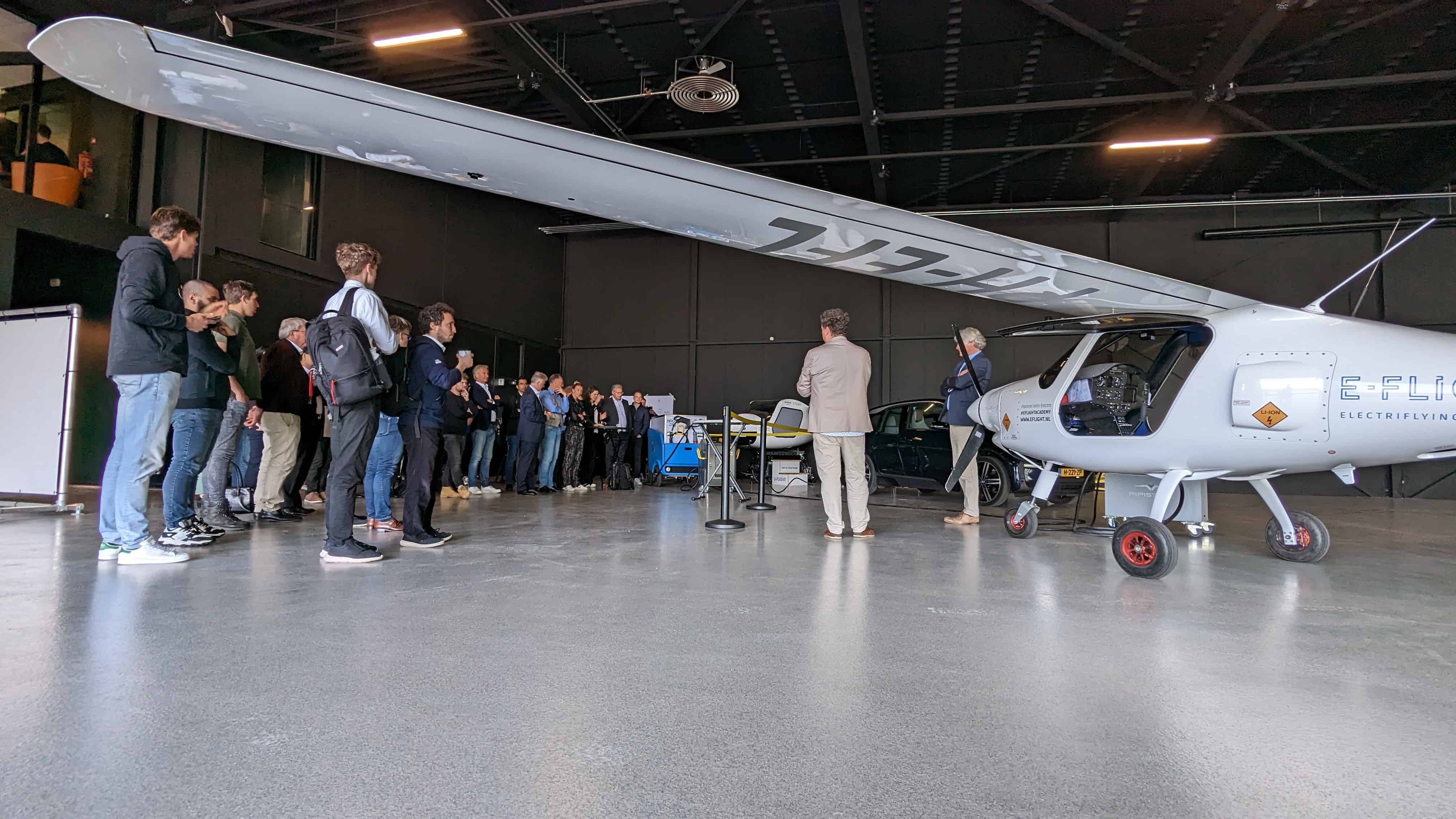
The student Dream Team Delft Hyperloop prototype can now ‘fly’ across the Delft campus. The nearly 40-meter-long test track is now on the Delft University of Technology campus. The Hyperloop is a new means of transportation that uses magnets to float and an electromagnetic motor to move forward. This means the hyperloop can go extra fast because there is no rolling resistance, and it also has a sustainable means of propulsion.
This is the first time Delft Hyperloop’s test track is on campus, less than 200 meters from their daily workplace in the Dream Hall. This allows the team to easily switch between testing on the track and adjusting the pod and the vehicle in the workshop. In addition to allowing the team to work efficiently, because the test track is on campus, it inspires passersby. Students and visitors cycle past it daily and thus get a picture of the project that has been worked on for seven years by TU Delft students.

The past three weeks have been hard at work building the nearly 40-meter test track. First, concrete slabs had to be placed on the site in which to drill. Then the complete construction of the track was put together, after which it was aligned to 2 mm accuracy. “This was hard work, and we had to work long days, but thanks to the help from the whole team, we got it finished on time,” says William van Nieuwburg, Lead Mechanical at Delft Hyperloop.
The test track is now fully constructed and can be seen on the Mekelweg on the TU Delft campus. This allows the team to test on a longer track, which will also allow them to show the maximum potential of the prototype before the competition (European Hyperloop Week), which takes place in July. After everything has been tested, the test track will be taken down again and shipped to Edinburgh, the site of this year’s competition. There, the team will have one week to build up the test track, which will be 50 meters long. “We will have to practice a lot, but since we are so well matched these days, we should be able to do it in one week,” says Massimo Coppola, Mechanical Engineer at Delft Hyperloop.








